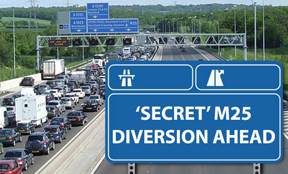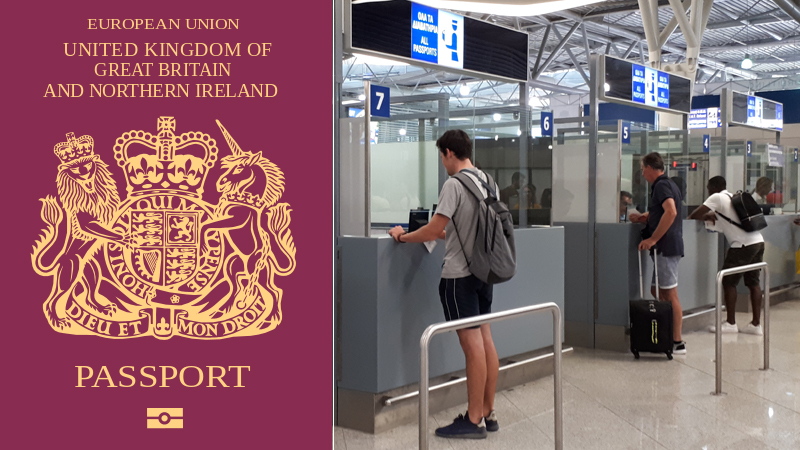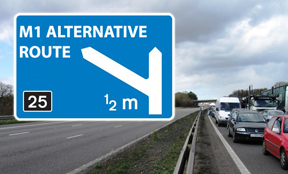
Whether you’re a new or experienced driver, there are various ways you can legitimately cut the amount of money you pay for your car insurance. Here motoring journalist and expert Pete Barden looks at the variables that help insurers set your premium and how adjusting them can result in big savings on your car's UK insurance policy.
The first thing to say is, never be anything but completely truthful in what you tell an insurance company, as any discrepancy at a later date could result in your insurance being cancelled – leaving you liable to pay any outstanding claims.
But, that doesn’t mean that you can’t save money without breaking any rules. Remember, insurance companies are businesses and they will be looking to take as much money from you as possible through add-ons and other areas that you can take control of and cut the amount you pay for your insurance.
Here we look at seven ways you can legitimately cut your car insurance premium…
-
TABLE OF CONTENTS
-
Don’t auto-renew your insurance policy
-
Don’t just think third party insurance will be cheaper
-
Work out your annual mileage
-
Don't buy, renew or change on the phone
-
Choose a higher voluntary excess
-
Carefully choose how you describe your job
-
Do you use your car to drive to work? If not you could save cash
 Here we look at legitimate ways to save
money on your car insurance. (Credit: Pexels.com)
Here we look at legitimate ways to save
money on your car insurance. (Credit: Pexels.com)
1. Don’t auto-renew your insurance policy
If you already have an insurance policy, make sure you do not simply walk into letting it renew when it runs out. While you might think insurance companies will be rewarding your loyalty, this is rarely the case and most policies will increase – even if you have not made any claims and benefitted from another year’s no-claims bonus.
Research published by price comparison site GoCompare found that more than 14 million motorists allow their policy to automatically renew – collectively costing them about £565m over what they should pay.
This equates to an average of each driver who auto-renews paying in the region of £40 more than they need to.
So, when you get your renewal notice, make sure you head to a comparison site to see how much you can save.
You must also remember to tell your current insurer that you don’t want to renew – as you could end up paying if you don’t – and by doing so, the insurer will likely offer you a better rate. Just make sure you visit some comparison sites first to ensure you know if the reduced premium they offer is worth accepting.
2. Don’t just think third party insurance will be cheaper
In the past, choosing third party or third party fire and theft policies was the go-to method for young/new drivers, or those with dodgy driving records when looking for cheaper insurance. This was because any third-party insurance policy offers a lot less in the way of cover than a fully comprehensive option – meaning lower premiums... in theory.
However, insurance companies soon realised they were paying out more in the way of claims for these high-risk drivers who would typically choose third party cover. With this data in hand, insurance companies have hiked the price of third party policies in the majority of cases.
Uswitch carried out some research and found that a 17-year-old driver without any no-claims bonus was quoted £1,222 for fully comp, £2,248 for third party fire and theft and £2,248 for third party only. And even for a 50-year-old driver with zero NCB, it was only 1% cheaper to choose third party.
So, get a quote for third party, but make sure you also get the same for fully comp – and, if the above example is anything to go by, you could save yourself more than £1,000 just by doing so.
3. Work out your annual mileage
Most insurance quotation forms will ask how many miles you cover each year, and the fewer you do, the less risk there is of a claim – so the cost of your insurance should go down. But once again, you need to be as accurate as possible as any huge discrepancy could end up in problems if you need to make a claim.
There are several ways to check your annual mileage. If you are expecting to cover the same amount of miles as in recent years, then check your MoT record online here and you should be able to see your annual mileage over recent years. You can also check your road tax renewal date, which is important for getting insurance.
Don’t forget to take into account any changes to your commute pattern since the pandemic, with many of us working from home several days a week, you might find your mileage is much reduced from previous years. Make sure your insurance policy reflects this if your circumstances are not expected to change.
If you drive fewer than the average annual mileage of UK drivers – about 5,300 since the pandemic, then you may be able to get a ‘low mileage’ insurance policy. Don’t just enter any figure in the ‘mileage’ field when getting an insurance quote – take some time to work it out properly and you could save a large amount of money.
4. Don't buy, renew or change on the phone
Buying, renewing or changing your policy can be up to £30 more expensive if you make the transaction on the phone through a broker's call centre. Avoiding the phone and choosing to secure your car insurance online will mean you are not forced to pay the admin charge that many insurers demand.
If you haven't got internet access, try to get a trusted family member or friend to organise the insurance for you online - but make sure you're present at the same time to ensure all the details entered are correct. Additionally, make sure you can definitely trust the person, as they will have access to your payment details. You should always be present and do the financial transaction yourself - or you could be breaking your bank's rules.
Subscribe for free motoring and travel news here - support independent journalism
5. Choose a higher voluntary excess
This is the amount you agree to pay when making a claim, and goes alongside any compulsory excess that is included in the terms and conditions of the car insurance policy.
Choosing a higher voluntary excess can see the amount you pay for your car insurance tumble, so it is certainly worth considering. Many insurers will typically let you choose your excess from between £0 and £1,000. Increasing your voluntary excess from £0 - £250 could potentially save you 5% of your premium. In theory, this means a new driver with a policy premium of £2,000 could save about £100 in the premium, but would mean losing out in the event of a claim.
It is important to ensure you consider the combined figure of both voluntary and compulsory excess figures before increasing the voluntary variable.
You should ask yourself, can you afford to pay if the worst happens? Look at the combined figure and ask yourself if you could afford this figure. If you are a careful driver with low annual mileage, then maybe it makes sense. Remember, if the claim was not your fault, you will likely get the excess recovered and paid back.
Have a play around with different voluntary excesses on a price comparison site and see if the savings are worth the additional risk.
6. Carefully choose how you describe your job
The job you do can add a large chunk of cash to the amount you are asked to pay for insurance – so being careful about how you describe your job is a good way to save money.
This does not mean you should lie, but look at all the options that could describe your employment and try them out on the price comparison site you are using.
An example of this is someone who works in publishing; describing themselves as a journalist could see the premium shoot up, but if they are a desk-based employee, then using writer or editor could see the premium tumble. Just take a look at what accurately reflects the role you do.
7. Do you use your car to drive to work? If not you could save cash
So, once you’ve chosen the correct job title, have a think about whether you actually use your car to travel to work. Do you take the train to work, or do you work from home now instead of the office – then make sure you tell your insurance company this – or add the fact to the price comparison site you’re using.
Be completely honest, though, if you drive to the station or use your car to drive to the office at any time, then you must let your insurer know – or you could find your policy is invalidated and leave you open to a fine, points, or a ban.
You should also remember to tell your insurer if you change jobs.
How much will young drivers pay for insurance?
If you're wondering why drivers, especially younger ones, need to cut their premiums, this research conducted by Quotezone.co.uk shows exactly the reason - with premiums of almost £3,000 a year in London and not far off it around the rest of the country.
|
Young Drivers Index Ages 18-24 (Jan 2024) |
||
|
REGION |
Ave. Premium |
|
|
1 |
LONDON |
£2,811.38 |
|
2 |
WEST MIDLANDS |
£2,392.30 |
|
3 |
YORKSHIRE |
£2,327.01 |
|
4 |
NORTH WEST ENGLAND |
£2,297.97 |
|
5 |
SOUTH EAST ENGLAND |
£2,105.06 |
|
6 |
EAST OF ENGLAND |
£2,030.26 |
|
7 |
NORTH EAST ENGLAND |
£1,966.55 |
|
8 |
EAST MIDLANDS |
£1,964.62 |
|
9 |
SCOTLAND |
£1,907.56 |
|
10 |
WALES |
£1,835.09 |
|
11 |
SOUTH WEST ENGLAND |
£1,714.21 |
|
12 |
NORTHERN IRELAND |
£1,359.1 |
- Always check the terms and conditions of individual insurers.
Latest motoring news and guides
Take a look at more of our top motoring-related content here...
-
CAR TAX SHOCK: How much is my car tax going to go up by?
-
CAN I STILL DRIVE?: My driving licence has expired - can I keep driving while I wait for a new one?
-
DRIVERS IN 20MPH PERIL: How fast in a 20mph zone will get a speeding ticket in London
-
TOP EVS FOR BRITS: What is the most popular electric car (EV) for UK buyers 2022?
-
TESTING TIMES: What day of the week are driving tests released?
-
SECRET EXITS: What are secret exits on motorways like the M25 and can I use them
-
M25 JAM BUSTER: M25 alternative routes revealed
-
SECRET PARKING FINES: Secret parking offences you're committing but don't realise
-
PAVEMENT PERILS: Can you park on pavements in the UK and what are the fines if not?
-
SUNGLASSES SHOCK: Are my sunglasses legal for driving - how to check instantly?
-
NUMBER PLATES EXPLAINED: How old is a car by its number plate? Full list
-
SPEEDING TICKET CHECK: Will I always get a speeding ticket after being flashed
-
AVOID POINTS: Will I get a speed awareness course instead of points?
-
DRIVING ABROAD DOCUMENTS: Do I need an international driving permit for France, Spain, Greece and more
-
WHITE LINES EXPLAINED: What are the rules around double white lines and the risk of £1,000 fine?
-
BRUM: DEAL Do I pay the Birmingham Clean Air Zone at weekends?
-
GOT YOUR NUMBER: What does my driving licence number reveal about me?
-
FAKE COP SHOCK: How to spot a fake undercover police car
-
ELECTRIC LICENCE TO DRIVE: Do I need an electric car licence and driving test in the UK?
-
VAPE RULES: Can I vape in a car with kids in it?
-
LICENCE TIMES: When can I apply for a provisional licence?
-
E-SCOOTER LAWS: Are electric scooters Legal in the UK now? When is the law changing?
-
SLIDERS MUST-KNOW: Can I drive in sliders in the UK?
-
DOT CHECK: What are the black dots on my windscreen for?
-
CAR TRACKER: How can I find out who owns a car
-
CHARGE AND DRIVE: Electric car charging points at UK airports for public use - 2022
-
TYRE-CHECK TOOL: How old are my tyres - find out instantly here
-
CAR FUTURE: What happens to a car when the owner dies?
-
SPARE WHEEL RULES: How far and how fast can I drive on a space saver spare wheel
-
TICKET RISK: Can I be fined if the car park ticket machine is not working?
-
M6 JAM BUSTER: Is the M6 Toll Road free in the evening and at weekends?
-
PAY OR NOT PAY: How much is the Tamar Bridge toll and when do I need to pay it?
Author: Pete Barden:
Twitter: @pete_barden
Pete Barden is a qualified journalist who has written and produced for publications including The Sun (thesun.co.uk), New Statesman Media Group, Whatcar? (Whatcar.com) Stuff Magazine (Stuff.tv), Fastcar Magazine (Fastcar.co.uk), Maxim Magazine and UK broadcast stations within the Heart network (Formerly GCAP). Pete specialises in motoring and travel content, along with news and production roles. You can find out more about Pete Barden on LinkedIn.
Read all articles by Pete Barden











